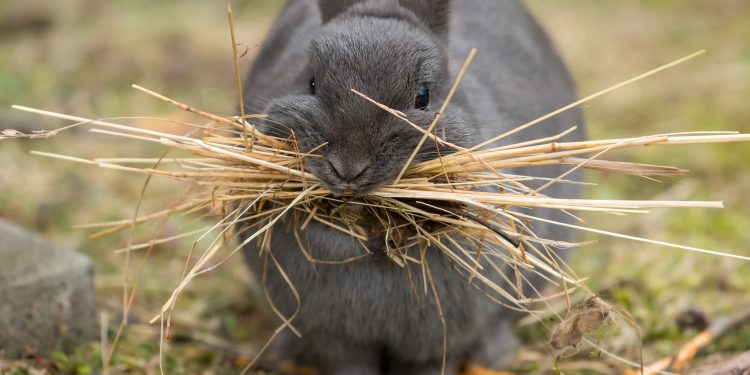Understanding Rabbit Behavioral Health Through the Lens of Pediatric Care
Rabbits, much like young children, communicate their discomfort or illness through behavioral changes rather than words. It’s crucial for rabbit owners to recognize these signals and respond accordingly. When a rabbit’s behavior deviates from its norm, such as a decrease in playfulness or appetite, it often indicates that something is amiss. This is similar to how a child may become sullen or irritable when they’re not feeling well. A rabbit that stops eating or playing, or one that suddenly becomes aggressive, is likely experiencing some form of distress. It’s our responsibility to observe these changes closely and interpret what they could mean for the health of our rabbits.
For example, a rabbit that is less active or shows a lack of interest in exploring its environment might be in pain. This is akin to a child who withdraws and becomes less engaged in play when they’re unwell. A rabbit that neglects its grooming, resulting in a dirty and unkempt coat, may be suffering from dental issues, obesity, or arthritis. This is comparable to a child who neglects their personal hygiene due to feeling unwell or depressed. It’s important to understand that rabbits are naturally inclined to hide their illnesses, making it even more imperative for owners to be vigilant and proactive in noticing subtle changes in behavior.
Regular veterinary check-ups are essential in maintaining your rabbit’s health, but it’s equally important to seek immediate veterinary care if you observe any behavioral changes. A vet can perform a physical examination and may conduct diagnostic tests to determine the cause of the behavior change. Depending on the diagnosis, treatment options can range from simple dietary adjustments to more complex medical interventions, such as surgery. By drawing parallels between pediatric care and rabbit care, we can better understand and respond to the needs of our rabbits, ensuring their well-being and longevity.
Drawing Insights from Pediatric Care to Interpret Rabbit Behavior
Rabbits, like children, communicate distress through their actions rather than words. If your bunny is selectively eating treats but ignoring their regular food, it could be an indication of a deeper issue, not just fussy eating. A complete lack of appetite in a rabbit is a critical emergency, mirroring the urgency of a child refusing to eat. Rabbits are sensitive to changes in their environment, diet, and social structure, much like children are to disruptions in their routines. These changes can manifest in what appears to be depressive behavior in rabbits, emphasizing the need for a stable and enriching environment.
To keep a rabbit mentally and physically healthy, they require toys, hiding spots, and opportunities to engage in natural behaviors such as digging and chewing. This is similar to how children need play and stimulation for their development. Addressing hormonal influences by neutering can also mitigate aggressive or destructive behaviors in rabbits, paralleling the management of mood and behavior in children experiencing hormonal changes. Physical activity is vital for rabbits to maintain digestive health, and a lack of it can lead to severe health issues, just as a sedentary lifestyle can negatively impact a child’s health.
Strategies for Early Detection of Rabbit Distress
The early detection of behavioral changes in rabbits is crucial for their health and well-being. Observing and understanding rabbit body language, such as ear positioning, can provide insights into their emotional state, akin to recognizing a child’s subtle facial expressions. Rabbits are inherently social creatures that require interaction and companionship. Without it, they can exhibit signs of loneliness or depression, much like children who need social connections to feel secure and content.
It’s also important to note that rabbits, like children, can develop anxieties and phobias due to negative experiences or insufficient exposure to various stimuli during their formative years. Monitoring your rabbit’s behavior is essential, and any changes should prompt a visit to a vet experienced with rabbits. A comprehensive check-up can help identify whether the issue is medical or behavioral, such as a need for more environmental enrichment. Addressing problems early can significantly improve your rabbit’s quality of life and prevent more severe issues from developing. By applying insights from pediatric care, rabbit owners can become adept at recognizing and responding to their rabbits’ needs, fostering a healthy and happy life for their bunnies.






